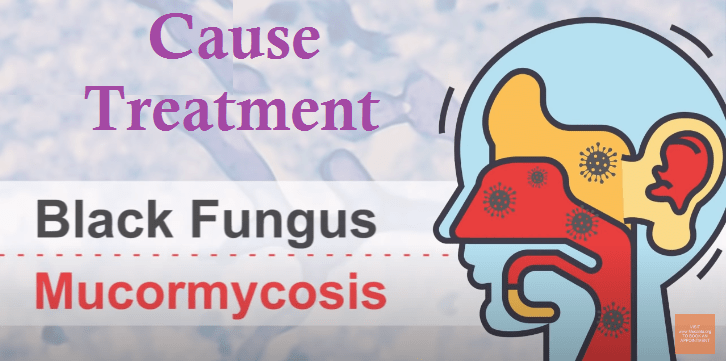People who have serious COVID-19, such as those in an intensive care unit (ICU), are more susceptible to bacterial and fungal infections. Aspergillosis or invasive candidiasis is the most frequent fungal infections in COVID-19 patients. These fungal co-infections are becoming more common, and they’re linked to severe illness and death.
What is fungal infection after Covid-19?
This week, there have been records of mucormycosis, also known as “black fungus,” in patients with COVID or recovering from COVID in India. Infections caused by fungi can be fatal. In this situation, mucormycosis contributes to the misery in a world that is still suffering from a COVID-19 crisis.
How is a black fungus caused?
Mucormycosis, or black fungus, is an uncommon but deadly parasite. Mucormycetes, a kind of mold, cause it, affecting the sinuses, lungs, skin, and brain. Mold spores may be inhaled or come into contact with them in the dirt, rotting produce or flour, and compost piles.
Coronavirus causes mucormycosis, a fungal infection. For a long time, the black fungus, also known as mucormycosis, has been the source of disease and death in transplant recipients, ICU patients, and immune patients.
What are the common symptoms?
Mucormycosis begins as an infection of the skin in the air pocket between our eyes, nose, cheekbones, and the back areas of our eyes and teeth. It then travels to the skin, lungs, and perhaps the brain. This causes nasal color or blackening, blurred or double vision, chest pain, difficulty in breathing, and bloody cough.
What causes Mucormycosis?
Mucormycosis, also known as black fungus, is a fungal infection complication. Mucormycosis is contracted by coming into contact with fungal spores in the atmosphere. After the fungus reaches the skin from scratch, scrape, burn, or other forms of skin damage, it may grow on the skin.
Patients who are healing or have recovered from COVID-19 have been shown to have the disorder. Furthermore, diabetic and has a weakened immune system should be on the lookout for this.
- If you’re going to a dirty building site, wear a mask.
- When touching dirt (gardening), moss, or compost, wear shoes, long pants, long sleeve tops, and gloves.
- Take care of your health, like a good scrub bath.
- According to the advisory, the condition can be treated by managing diabetes, discontinuing immunomodulation drugs, reducing hormones, and extensive surgical debriding to erase all necrotic materials.
Do’s
- Hyperglycemia must be controlled
- Blood sugar levels should be checked after COVID-19 is discharged as well as in diabetic patients.
- Use steroid sparingly.
- During oxygen treatment, use only hot, distilled water in humidifiers.
- Antibiotics and antifungals should be practiced with caution.
Don’ts
- Should not overlook alert signs and sysmptoms.
- In the sense of immunosuppression and/or COVID-19 patients on immunomodulators, do not assume all cases of the blocked nose to be cases of bacterial sinusitis.
- If you suspect fungal etiology, don’t be afraid to pursue vigorous investigations (KOH staining and microscopy, culture, MALDI-TOF, etc.).
- Do not miss the possibility of starting treatment for mucormycosis.
Note: After healing from coronavirus, it’s essential to keep a close eye on any warning signs and symptoms listed above, as the fungal infection can resurface weeks or months later.



